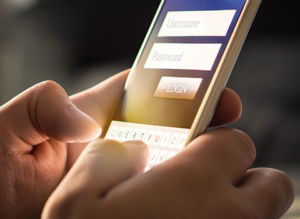Apps for Stalkers Disguised as Parental Control Tools
Sell something called “SuperParent” or even the actual FlexiSpy — and all is swell. Frankly, I’m not opposed to monitoring a child’s phone, kids shouldn’t have phones anyways.

But sell something called “iStalk” or “StalkU,” well … this won’t quite go over well with the authorities or the general community.
It’s all in a name (pardon the cliché).
Apps that track users contain Spyware. A wannabe stalker can secretly install such an app on their intended victim’s phone via any of the following:
- Manual access to the phone
- Link to a Twitter share
- Share for LinkedIn or Whatsapp
- Text a link posing as security update
Sending a “malicious” link works when its clicked. However the stalker will usually need to have access to the victim’s phone to install the tracking software. With the way people leave their phones lying around, this is fairly easy to do – to users who don’t have a password set up for their device or share their password with their “stalker”.
What can some “stalking apps” track?
- Call logs
- Contents of text and chat messages
- Location of phone (and hence, victim if the phone is with them)
- Listening in to ambient sounds picked up by the phones microphone
- Listening in to phone calls
- Access to voicemail
According to a 2014 study by the National Network to End Domestic Violence, 54% of domestic abusers use tracking software, for which its icon can be visibly concealed from the victim.
Though availability of tracking apps has become more limited over time, due to the revelations of how these have been abused, they are still available, such as mSpy, which can be easily downloaded to Android devices.
Downloading stalkware to iPhones is more challenging, but far from impossible. In fact, one technique doesn’t even require physical access to the target’s phone. And even then…this can be breached by a techy stalker.
How do app makers cover their butts?
They include language with their apps, such as citing that consent of the target is required before installation, or that the app company will cooperate with law enforcement should a complaint be reported.
Stalkware isn’t going away anytime soon. Thus, the emphasis needs to be on prevention.
How to Prevent Remote Stalking
- Heavens, please don’t let your new boyfriend/girlfriend talk you out of having a password with some kind of nonsense like, “If you trusted me you wouldn’t need a password.”
- Never share passwords.
- Tell him or her – on the first date – that your phone is off-limits to them. If they give you flack, it’s over. Only a control freak would mind this.
- If they keep cool, this could be an act to gain your trust. Never leave your phone alone with that special someone.
- Keep your phone turned off unless you’re using it.
- Disable the GPS feature.
- Never leave your phone unsupervised in the presence of other people, even your new boyfriend’s great-grandmother.
Robert Siciliano personal security and identity theft expert and speaker is the author of Identity Theft Privacy: Security Protection and Fraud Prevention: Your Guide to Protecting Yourself from Identity Theft and Computer Fraud. See him knock’em dead in this Security Awareness Training video.

 Unusual Background Noise
Unusual Background Noise






























